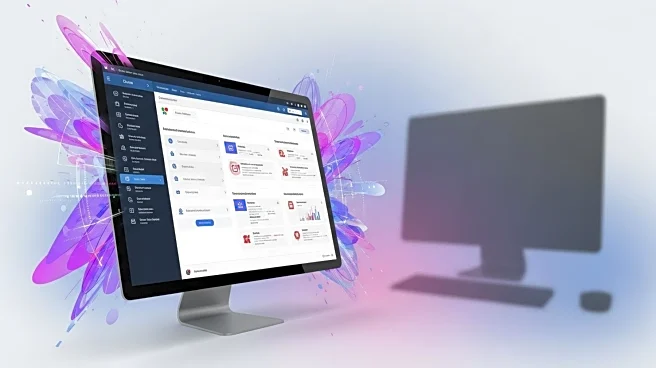What's Happening?
The market for software tools supporting HM Revenue and Customs' Making Tax Digital (MTD) regime could be undermined by an alternative product developed by HMRC itself, according to exchequer secretary to the Treasury Dan Tomlinson. HMRC has maintained a policy of enabling MTD users to access services via third-party tools, with 461 platforms currently available for VAT returns. The MTD regime is set to expand in 2026 to include income-tax returns for the self-employed and landlords. Ministers have been asked to assess the potential merits of HMRC developing its own software, but Tomlinson argues this would harm the competitive market.
Why It's Important?
The expansion of the MTD regime to include income-tax returns could significantly impact taxpayers and software developers. Maintaining a competitive market for digital tax software is crucial for providing flexible and tailored solutions to taxpayers. An HMRC-produced solution could undermine existing free and low-cost options, affecting businesses and individuals who rely on third-party tools. The government's approach to digital tax reporting reflects broader trends in public sector digital transformation, with implications for software developers and taxpayers navigating the evolving landscape.
What's Next?
HMRC will continue its testing process ahead of the MTD regime's expansion in 2026. The department will monitor the financial and other impacts of the digital tax programme, with exemptions available for those unable to interact digitally. Stakeholders, including software developers and taxpayers, will need to adapt to the changes and assess the implications for their operations. The government's commitment to maintaining a competitive market will be crucial in ensuring the success of the MTD expansion.











